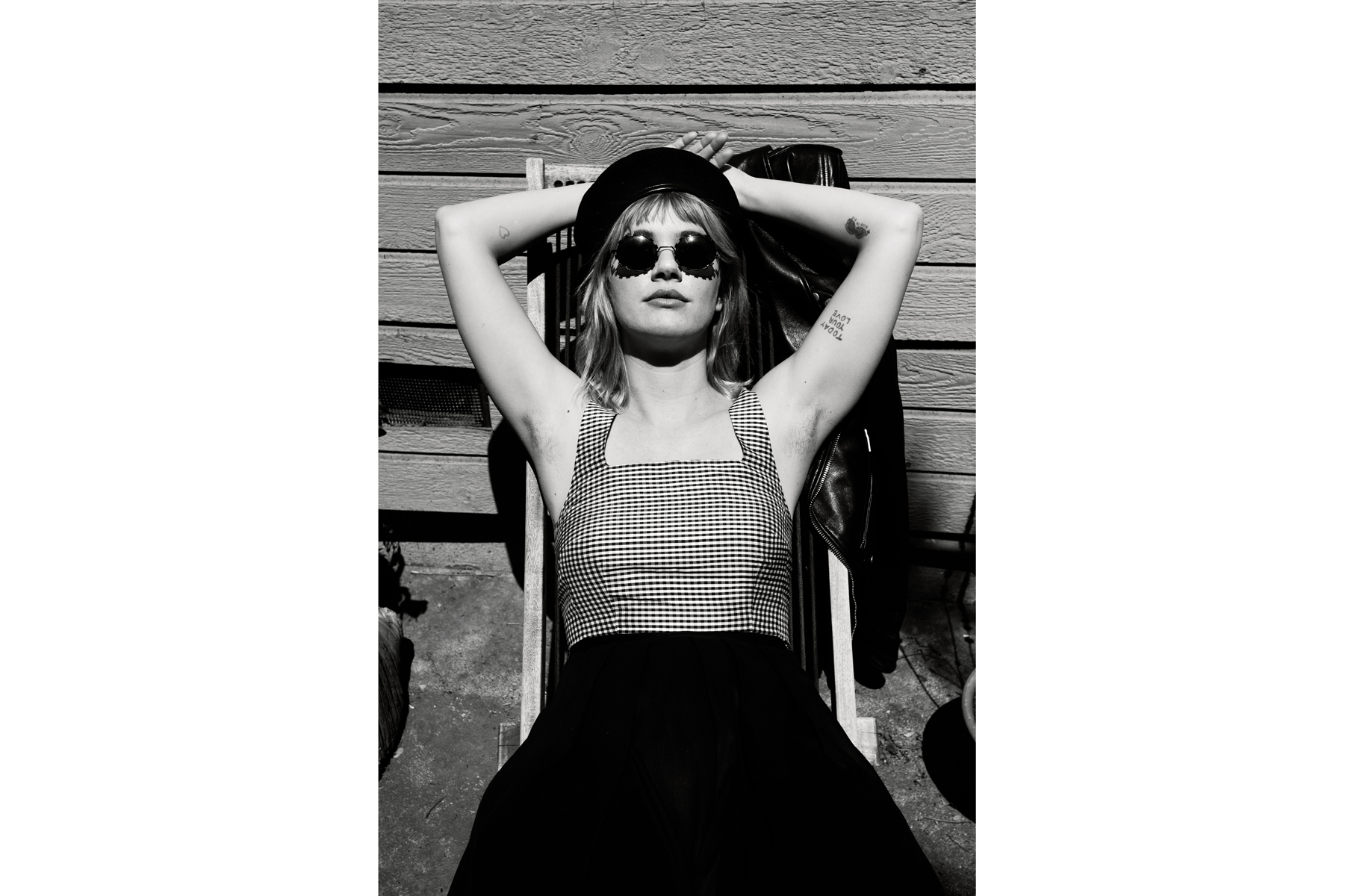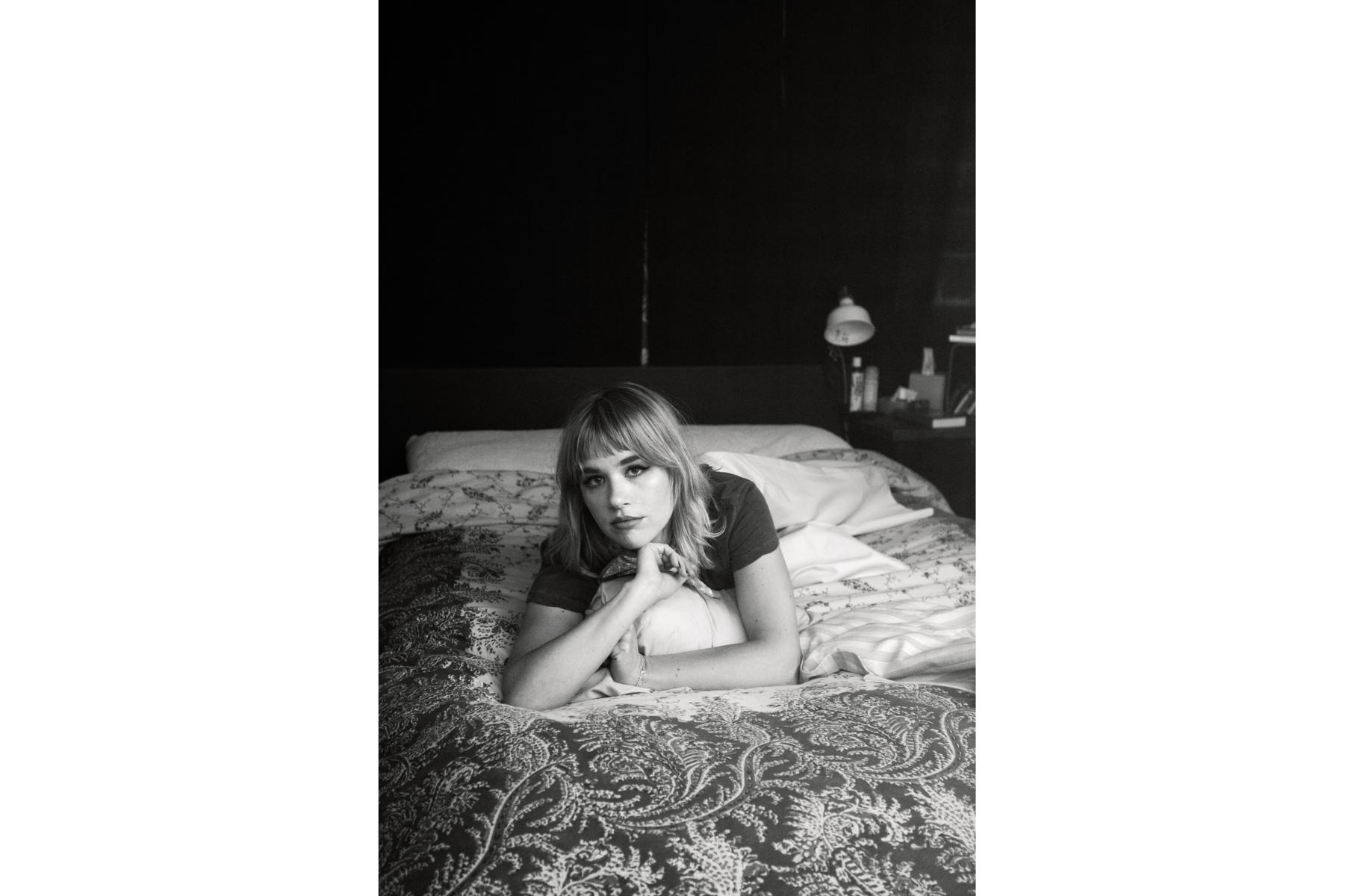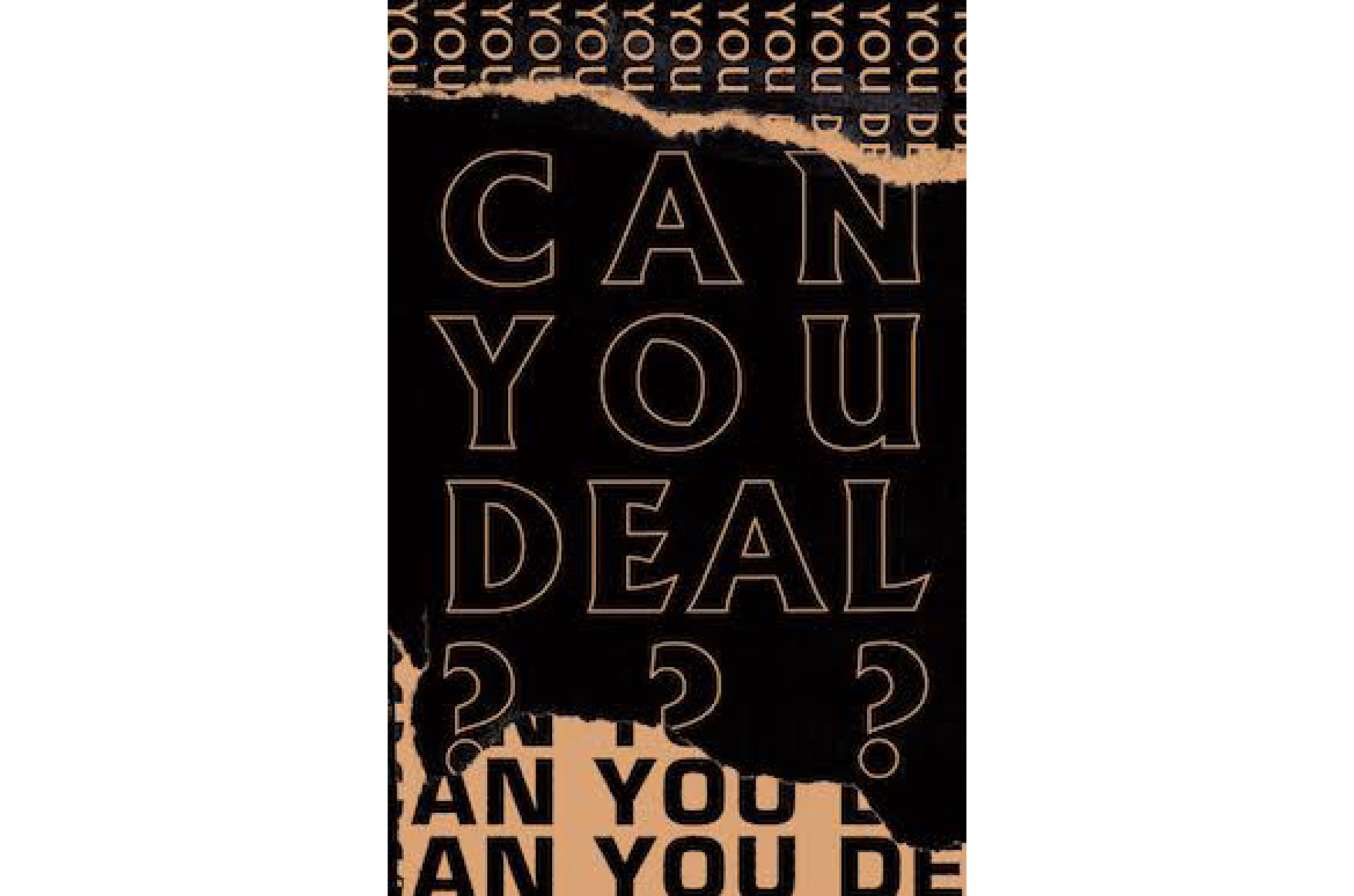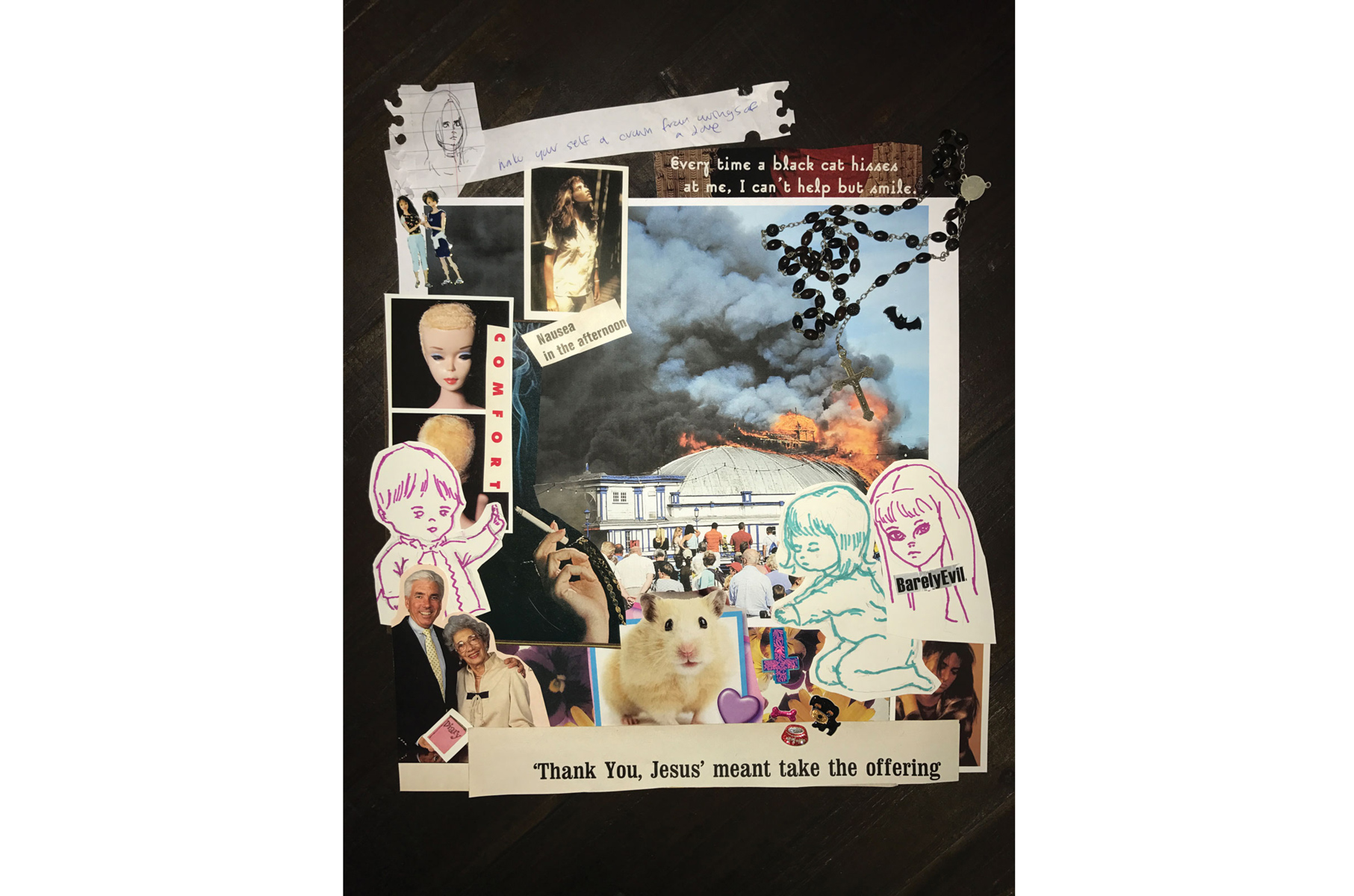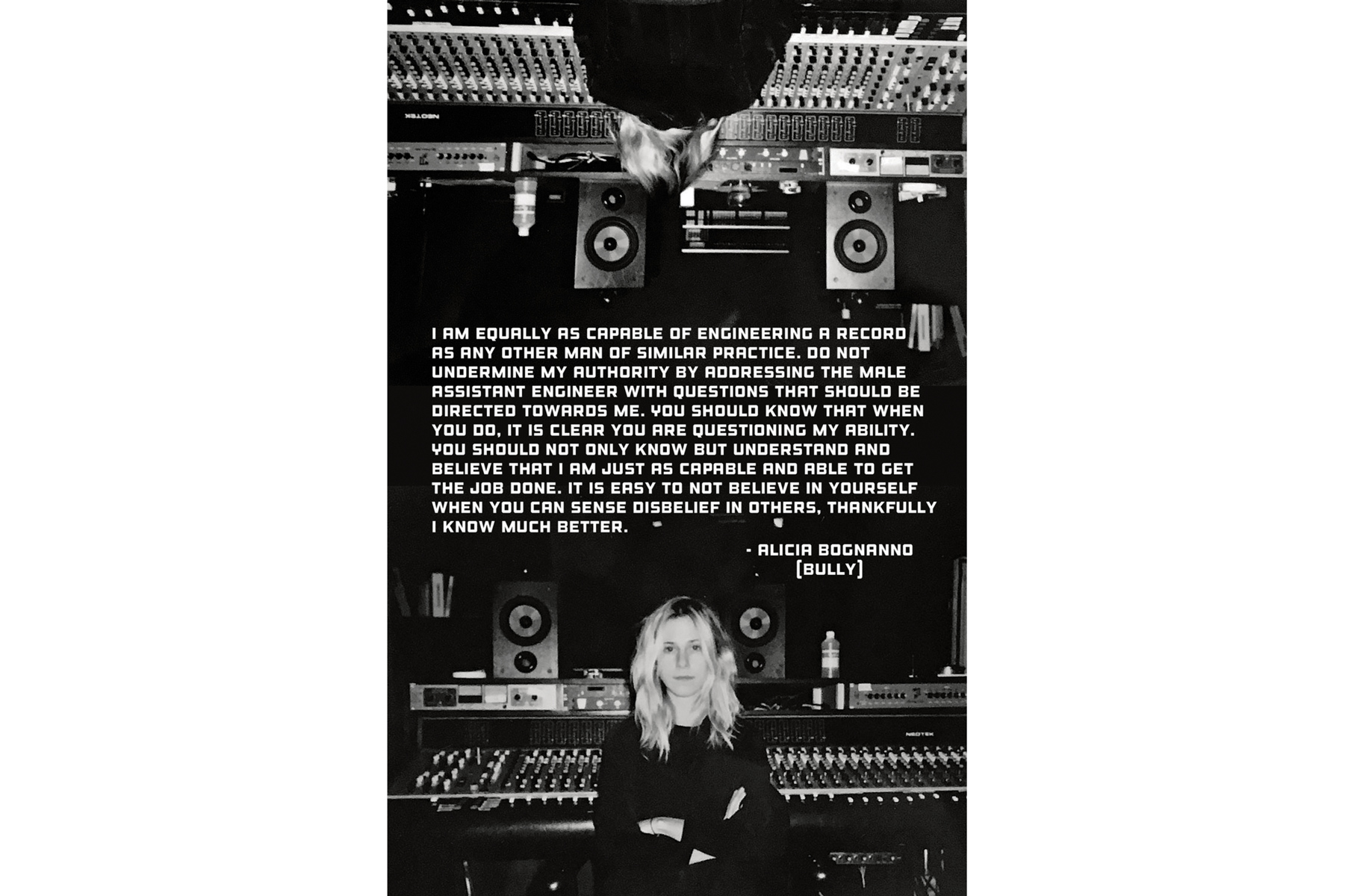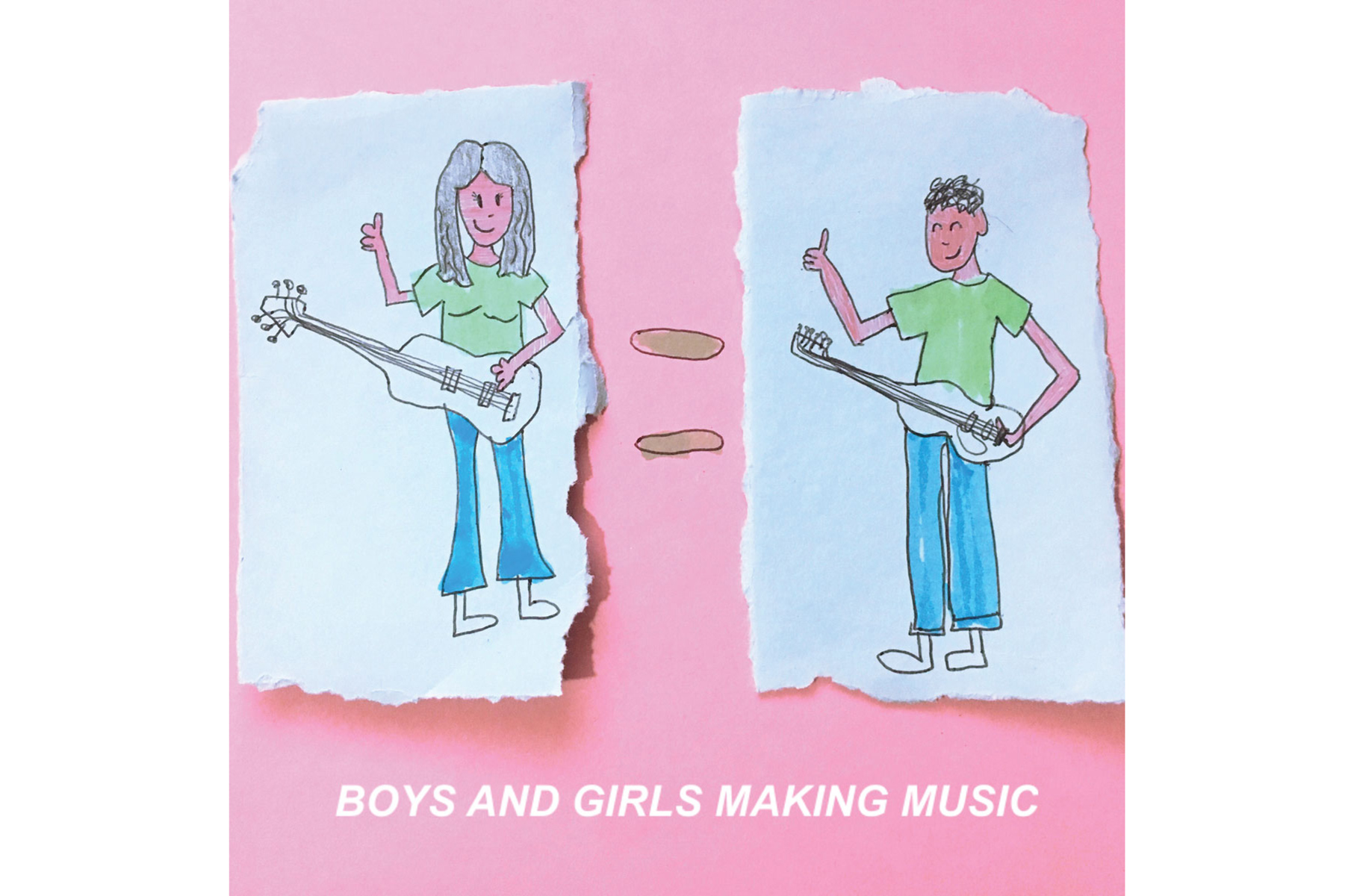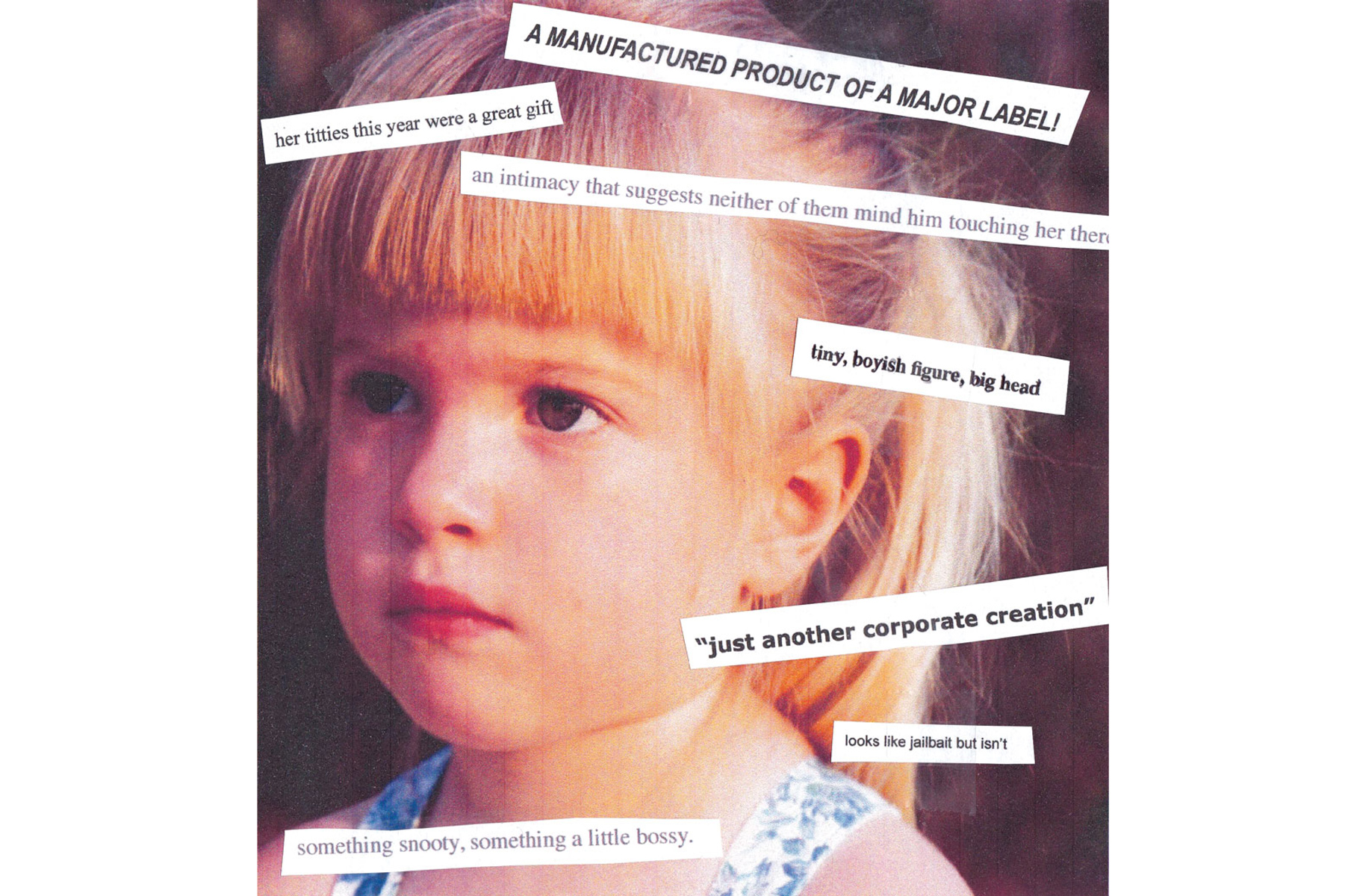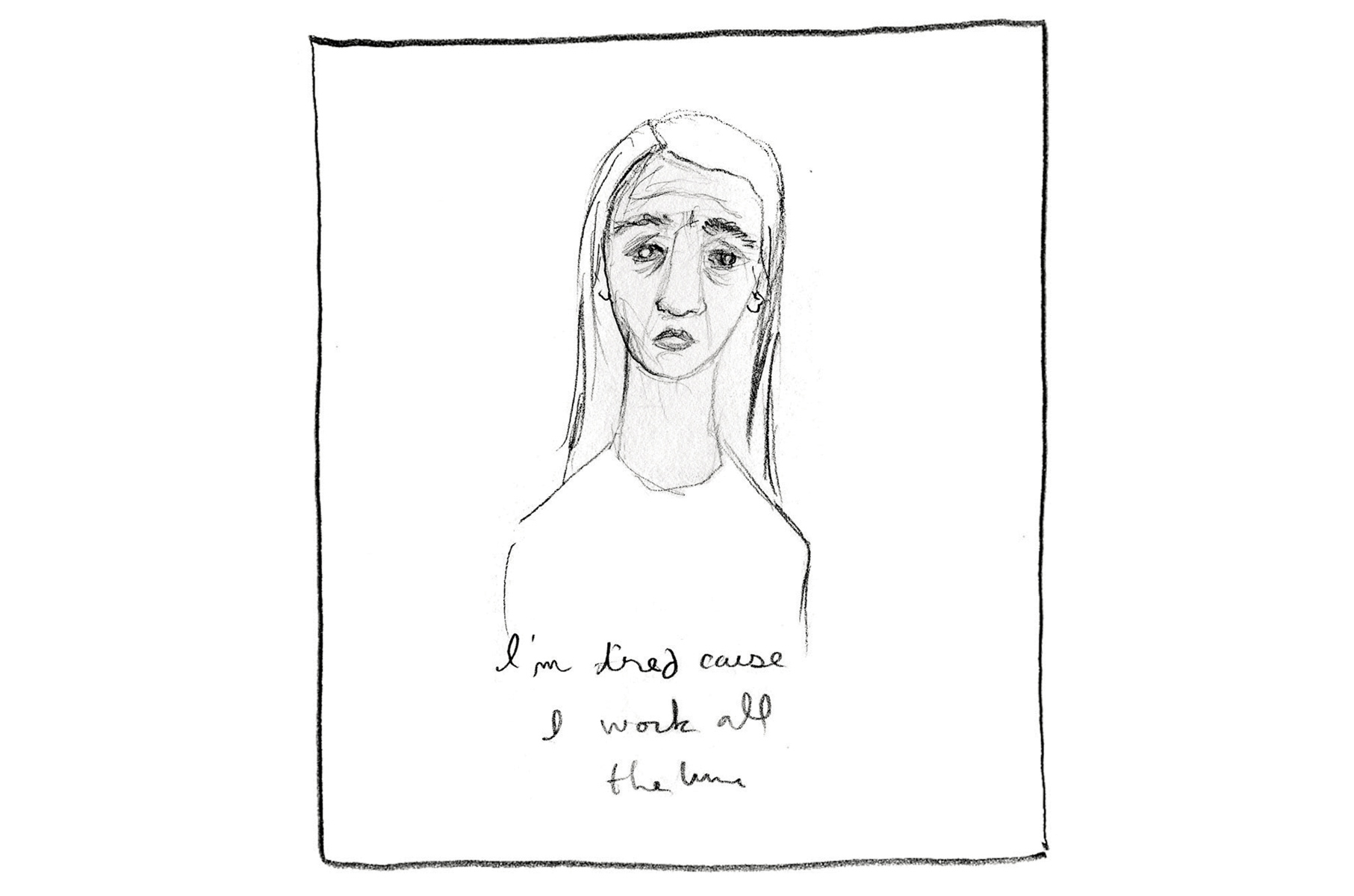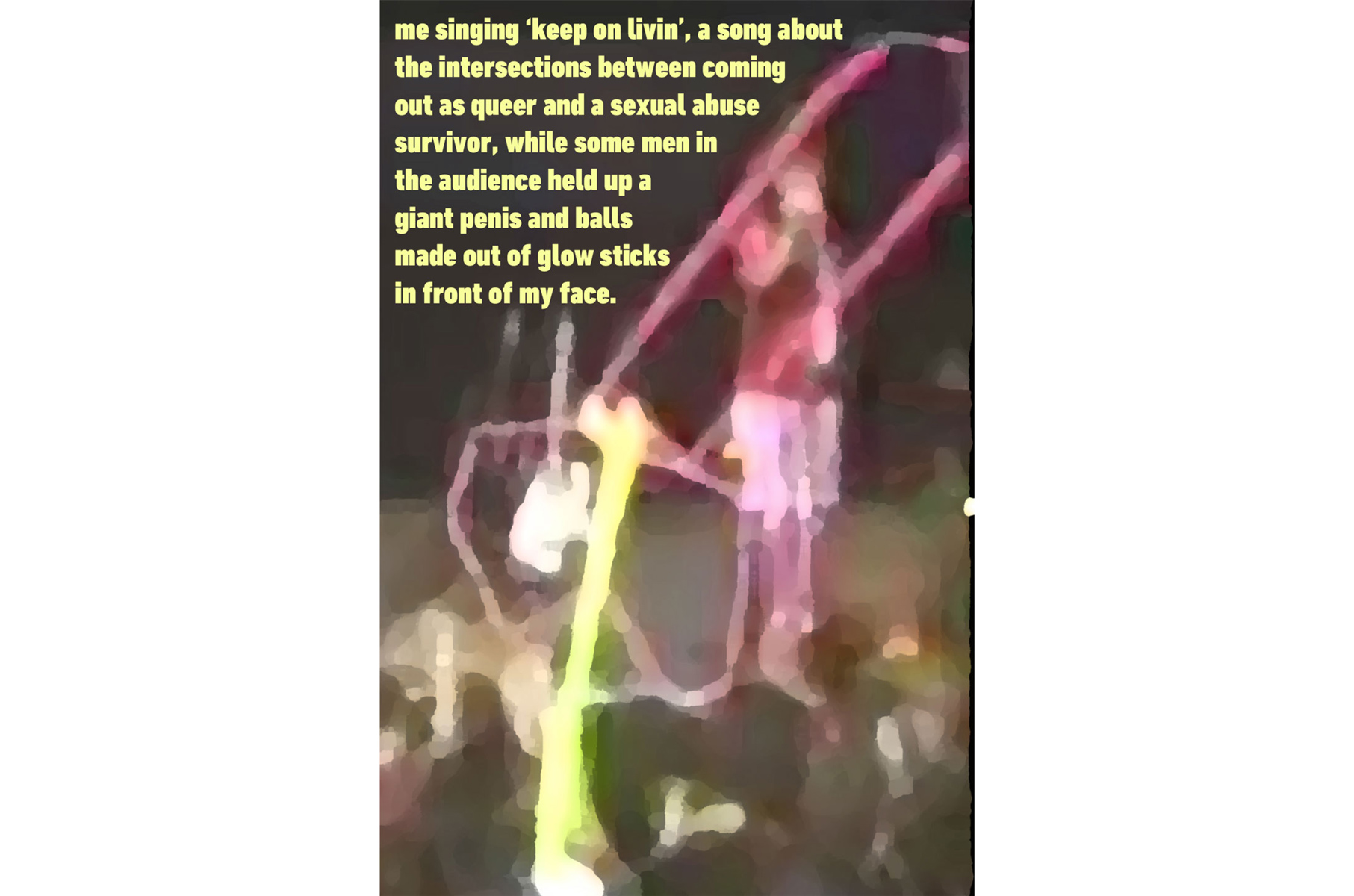Jennifer Clavin
Interview by Cecilia Della Peruti
Images by Ira Chernova
Styling by Lera Pentelute
Hair & Makeup Alexis Swain
“There are so many interviews going on around me and
the release of the new record, and a majority of
the questions were like, “What’s it like to be a girl in a band?”
Or the headlines would say all-girl band.”
— Jennifer Clavin
Bleached
Bleached is a Los Angeles-based band comprised of frontwoman Jennifer Clavin and guitarist Jessica Clavin, formerly of Mika Miko, bassist Micayla Grace, formerly of Leopold & His Fiction, and drummer Nick Pillot. The group has released the studio albums Ride Your Heart (2013) and Welcome the Worms (2016) via Dead Oceans. Their EPs include Francis, Carter and Searching Through the Past b/w Electric Chair.
Mika Miko
Formed in Los Angeles in 2003, Mika Miko released 10 recordings, including EPs, tapes and full albums, and was known for their frenetic live shows. The band was comprised of Victor Fandgore (Jennifer Clavin), Jet Blanca (Jenna Thornhill), Michelle Suarez, Jessica Clavin and Jon Erik Edrosa. The group broke up in 2009, and the Clavin sisters went on to form Bleached in 2011.
Cecilia Della Peruti
A Los Angeles-based musician, Cecilia Della Peruti fronts the band Gothic Tropic. She has released Awesome Problems EP (2011) and the recent full-length Fast or Feast (2017), recorded in LA with Devendra Banhart and Electric Guest’s Todd Dahlhoff. Peruti has also toured with bands including Børns, Charlie XCX and Night Terrors of 1927.
Can You Deal?
A 2017 zine compiled by musician Jennifer Clavin of Bleached. In a series of essays, images and personal accounts, artists share their experiences of their female gender defining other people’s narrative of their art. www.canyoudealzine.com
F-Minus
A hardcore punk band from Huntington Beach, California, F-Minus was formed in 1995 by Jen Johnson and Brad Logan, though the lineup changed before the band’s breakup in 2004. F-Minus released four albums including Self Titled (1999), Suburban Blight (2001), Wake Up Screaming (2003) and Won’t Bleed Me / Failed Society (2005), as well as six EPs.
Inspired by the punk shows they saw growing up in Los Angeles, Jennifer Clavin and her sister Jessica founded their first band, Mika Miko, in 2003. As the group gained popularity and played energy-infused live shows, Clavin realized that instead of interviews focused on their music, the press asked various forms of one question: “What’s it like to be a girl in a band?” This treatment of gender over art indicated that being female and in a band—or worse, in an all-female band—was an act or some sort of protest instead of what it actually was: musicians making music together.
The Clavin sisters now front Bleached, which they founded in 2011, and after 14 successful years releasing albums, playing shows and making Billboard charts, they still hear variations of that same question. This year, they released their sophomore album Welcome the Worms, which Clavin describes as her most challenging, emotionally deep record to date. If Clavin was tired of hearing these types of gender-based, beside-the-point questions, she thought her female contemporaries must be as well. She reached out to them—a prolific, powerful group of musicians including both newcomers like Julien Baker and Hinds and industry veterans like Allison Wolfe (Sex Stains, Bratmobile) and L7. Their responses are compiled in Can You Deal?, Clavin’s recent zine which protests simplistic “girl band” journalism and speaks out against how females are treated in the music industry. Following the 2017 election, Clavin has also been active politically, releasing a set of acoustic covers for purchase via Bandcamp and donating the proceeds to Planned Parenthood.
In the sort of interview she’d like to see more often, Clavin talks with her friend and fellow musician Cecilia Della Peruti of Gothic Tropic about Can You Deal? and shares her essay that kicked off the zine.



Cecilia Della Peruti: So, when did you start playing music and writing songs? Who inspired you to pick up an instrument?
Jennifer Clavin: I started playing music in ninth grade, I think. My dad had guitars around the house that he made himself and my mom was a singer. We would go to these family barbecues, and they would be the band that would perform for everybody.
“When I found punk in high school,
I was like, ‘Woah, this is so cool.
My parents will not approve of this.”
— Jennifer Clavin
CDP: Our parents’ generation called those “hootenannies.”
JC: Oh my God, so my parents are hootenannies. So many jam sessions. I feel like I was always listening to whatever music they were doing, so when I found punk in high school, I was like, “Woah, this is so cool. My parents will not approve of this.” My sister Jessie and I would go to like two shows a week or every weekend—whatever band was playing at The Showcase or The Glass House.
CDP: Did you grow up in coastal regions?
JC: No, in the valley—Northridge. But we would drive until we got to The Glass House or The Showcase in Corona. I remember seeing a lot of older bands like The Attics or The Rezillos or Subhumans. One time we saw this band F-Minus play. I’d been going to shows every weekend and for some reason seeing them both onstage made me think, “Wait. Why don’t my sister and I have a band?” Jessie was already playing bass heavily at that point. I remember trying to play bass a little bit, and that’s when I decided I should pick up a guitar, since they were laying around my house, and learn to play so me and Jessie could be in a band together. We had our friends singing. So basically we started playing music to be able to be in a band. It was seeing F-Minus that made me decide to pick up an instrument, and I always wonder that it must have been because there were women on stage.
CDP: Do you feel like seeing F-Minus and having an early real-life example of women playing instruments was an invitation to do it yourself?
JC: Yeah, totally. It seemed like something that I could actually achieve. I’ve never taken a class to learn an instrument, so it’s weird that I got this idea like, “I think I can do that too,” just by seeing a woman on stage.
CDP: So when you started, did you ever recognize any sexism at that age and do any experiences come to mind?
JC: I think about this question a lot. I always wonder how much sexism I experienced and how much of it was me not being confident in myself. When I would go to shows like, I remember a guy grabbed me.
CDP: Did you realize at that time that it was maybe worse than you thought?
Because I remember brushing it off easily for no other reason than, “Oh, it’s normal.”
JC: Yeah, same. I feel like maybe I didn’t want to make a scene. This guy’s way bigger than me if I were to say something back.
CDP: Fear of being misunderstood is difficult. That scene was very emotionally harsh. You don’t want to feel like you’re lame or something.
JC: I was full of a lot of rage and anger back then, so there became a point where I was fueled by the sexism and wanted to stand up to it, for myself and for my sister. One time, I made out with a guy, and he was like, “Do you want to go to the bathroom and give me a blowjob?” I was so offended. I would never say, “Do you want to go to the bathroom and eat me out?” I was like, “Fuck you. You’re gross. Never into you again.” There are so many moments as we grow up that we don’t understand it, and so when it happens it kind of throws us for a loop.
CDP: It’s a social domino effect wherein one little girl watches another little girl stand up for herself to influence the rest of the group.
JC: Totally. I remember my best friend at the time would not take shit from anybody, so I really learned a lot from her.
CDP: I had a kind of “hurt puppy complex” growing up, so I was the underdog, with a doormat life. There was so much resentment as a result of not standing up for myself when I should have.
JC: I remember one time when I was a kid, before I started a band or even found punk, I went to New York with my mom. We were on the subway, and she lifted her arm to hold onto the pole in the fully-packed subway. It was super hairy, and I was so embarrassed like, “Oh my God, how could my mom think it’s okay to put her arm up?” I always think back on that because now I have full, hairy armpits and most of my friends do.
“It was seeing F-Minus that made me decide
to pick up an instrument,
and I always wonder that it must have been
because there were women on stage.”
— Jennifer Clavin
CDP: That’s the early priming that all the Disney movies try to accomplish with their standard of beauty—being clean-shaven, white, doe-eyed. It starts when you’re a kid and it’s so cool that people are more conscious about that in the consumer world.
JC: Usually I hate on the Internet, but maybe that’s one good thing about it: having the young girls follow your Instagram and realize, “She has hairy armpits.”
CDP: So, how did the zine come to be?
JC: We had just released Welcome The Worms and were touring for almost a year straight, playing shows almost every day. There were so many interviews going on around me and the release of the new record, and a majority of the questions were like, “What’s it like to be a girl in a band?” Or the headlines would say All-Girl Band. I’ve been playing music for over 10 years, and my first band, Mika Miko, used to get this question all the time. We were all girls for a while and then we had a guy drummer. It used to bother me so much because the questions always seemed like they were saying, “So you put all your girl friends together to start a band to make a statement.” And at that time, I was like, “No, we are just friends. These are my friends. We all learned how to play music together, not trying to be like ‘fuck the men’ by starting an all-girl band.” But we got asked that question so many times. We were also always labeled “riot grrrl” back then.
CDP: It just feels weird to say that a woman playing music is an act of resistance in itself.
JC: I know, right? That has really bugged me. I feel like I just got used to all those questions. You kind of let it go in one ear and out of the other. You’re just like, whatever, I feel sorry for the person who’s asking me this, but at the same time I just don’t feel like making a big deal about it. So, this started happening again with Welcome The Worms. It was the first record where I went so deep inside myself and really wrote about honest stuff. It took a lot out of me. But then, once again, we’re doing interviews and they were based more around my gender than what the record is about.
CDP: You had just poured your heart and soul into it and are now in a generous position to elaborate on what you are writing about. And if no one asks you what you’re writing about, it just kind of feels like you put all this into it and are not given the opportunity to share the real content.
JC: If we’re given such a limited time to talk, ask me stuff that matters.
EXCERPTS FROM CAN YOU DEAL?
Jennifer Clavin (Bleached): Growing up I didn’t feel comfortable with society’s standards of being a “girl”. Not that I wanted to be a boy, I just wasn’t interested in wearing makeup, the color pink or talking about boys. I wanted to learn how to skateboard and play music.
My best friend and I would dress up like boys and go to the local backyard punk shows in either east LA or the valley. I had cut off all my hair at that point. We would put on baseball hats, tape our boobs down and just hang out. When I would get mistaken as a boy I felt so accomplished. I wanted my name to be Victor no matter what I looked like and to be honest, I still love that name.
Later, I began to embrace the feminine side in me. Wearing dresses and embracing my curves. I eventually felt excited to be a woman. I was finally comfortable expressing my femininity and confident enough to brush off the sexist remarks, inappropriate slurs, uninvited advances or misconduct I would encounter: a back and forth of acceptance in itself.
“If we’re given such a limited time to talk,
ask me stuff that matters.”
— Jennifer Clavin
Eventually one of my first bands, Mika Miko, got some recognition. Interviewers would constantly ask “What is it like to be a girl in a band?” or “Did you purposely construct your band with all girls to make a statement?” I was thrown off by these questions. Mika Miko was my best friends and my sister, not a carefully constructed statement. I wasn’t aware that females starting a band together was anything more than us making music. Now I was rebelling? Over the years we all learned to ignore the question, be polite about it and move on. What would you like me to say? Even one interviewer was shocked when I listed my favorite bands at the time… She couldn’t believe I didn’t list one band with a female singer. I wasn’t thinking about gender, I was thinking about the music that makes me fucking feel something!
Alice Glass
Alice Glass is the co-founder and former frontperson of electronic band Crystal Castles. The third single from Crystal Castles (II) (2010), “Not in Love,” which featured Robert Smith from The Cure, became the band’s highest charting single to date. In October 2014, Glass announced her departure from the band to pursue a solo career.
Last year my band Bleached released a full length album titled Welcome The Worms. This record was very personal to me. I wrote about being in and getting out of an emotionally abusive relationship. It was a record about getting spun out on drugs and alcohol. It was a record about totally losing myself in order to find myself. It was also our most ambitious body of work yet, containing the guitar work and production we had only dreamed of until then. To this day I am still fielding interview questions that have more to do with my gender than with the art I am creating. Somehow, the conversation still derails into some variation of: “What is it like to be a girl in a rock band?” People act surprised that women can play well, play loud, make records and tour as if it has not been happening for years. I’m done with this novelty they’ve turned me into: a girl playing guitar. I am a musician.
So, here is my answer to your question. Being a girl in a band is no different than being a girl in any field. We have people consistently pointing out our gender as if it relates to our ability. Our gender is pointed out in nearly everything as if it was integral to understanding our band. Labeling me as a woman puts me in a box and forces me to conform to gender roles. This ignores everything else I am. I want to be seen beyond gender and not what the medical stamp says on my birth certificate. When does the novelty wear off? Labeling me is reductive. I create music and art because I need to. To express, to bond, to reconcile, and to connect and to use my voice. It is insulting to have my art received with such a generic filter. The title track to Bleached’s new EP, “Can You Deal?” is about my experience with this. “You know that it’s me, Who Else Could I Be? Don’t You See?”
“Being a girl in a band is no different
than being a girl in any field.
We have people consistently pointing out our
gender as if it relates to our ability…
This ignores everything else I am.”
— Jennifer Clavin
I feel the need to create a space for females to share their experiences. The first step towards change is awareness.
Can You Deal? is for every girl out there who is sick of every male sound engineer telling them what they think is right for their guitar set up. Can You Deal? is for every girl who has been told that “girl bands are in right now” by an A&R guy. Can You Deal? is for any girl mulling over press photos, knowing their band will be picked apart for looks and not the actual music. Can You Deal? is for everyone who can please stop referring to my band as “female fronted” or “all girl band”. It is for everyone who can stop feigning surprise every time a woman plugs in and plays well, gets behind the drums or has the sickest bass style. It is 2017.
CAN YOU DEAL YET?
Mish Way
White Lung are a Canadian punk rock band who formed in 2006 with Mish Way-Barber as their vocalist, Kenneth William on guitar, and Anne-Marie Vassiliou on drums. Their first album, It’s the Evil (2010), was released on Deranged Records. Bassist Caroline Doyle joined the band in 2016.
Patty Schemel
Patty Schemel rose to prominence as the drummer of Courtney Love’s band Hole from 1992-1998. In 2013, Schemel joined the indie rock group Upset, formed by Ali Koehler, previously of Vivian Girls and Best Coast.
Allison Wolfe
While studying at University of Oregon, zine writer Allison Wolfe met Molly Neuman and together they formed Bratmobile, some of the first members in the riot grrrl scene. Bratmobile released their first full-length album, Pottymouth (1992) on Kill Rock Stars, an Olympia-based record label.
Micayla Grace
Formally the bassist for folk rock band Leopold & His Fiction, Micayla Grace now plays for the punk rock band Bleached. Their most recent EP Can You Deal? (2017) deals with the complexities of being female musicians in a male-dominated industry.
Marisa Prietto
Bay Area band Wax Idols originally started as Hether Fortune’s solo project, and expanded to include Marisa Prietto, Rachel Travers and Peter Lightning. Their latest single “Everybody Gets What They Want” was released through Etruscan Gold (2016).
Tegan Quin
Multi-instrumentalist and songwriter Tegan Quin is one half of Tegan and Sara, a Canadian indie pop band, with her identical twin sister Sara Quin. Both sisters are openly gay and active members of the LGBT community. The duo have released eight studio albums and numerous EPs.
Alicia Bognanno
Before starting her own project, Alicia Bognanno interned at Steve Albini’s Electrical Audio studios in Chicago. She recorded demos of her own material there before relocating to Nashville, Tennessee, where she formed Bully. The band’s debut album, Feels Like (2015), was recorded live in only a handful of takes.
Hinds
Formerly known as Deers, Madrid indie rock band Hinds formed in 2011, and consists of Carlotta Cosials (vocals, guitar), Ana Perrote (vocals, guitar), Ade Martin (bass, backing vocals) and Amber Grimbergen (drums). They have released one album, one compilation LP and four singles.
Liz Phair
Liz Phair is an American singer, songwriter and guitarist. Her 1993 debut studio album Exile in Guyville was released to acclaim, it has ranked by Rolling Stone as one of the 500 Greatest Albums of All Time.
Lizzo
Melissa Jefferson, better known as Lizzo, is an alternative hip-hop artist who founded the indie hip-hop groups The Chalice, Grrrl Prty, The Clerb, Ellypseas and Absynthe. Time included her in their list of 14 music artists to watch in 2014. Coconut Oil was her first EP off the major label Atlantic Records. (2016)
Laena Geronimo
LA-based band FEELS was started by Laena Geronimo, born out of her previous project, Raw Geronimo. Their self-titled debut LP (2016) was produced by Ty Segall and showcases the band’s raw, frenetic punk energy.
Hayley Williams
Hayley Williams is the lead vocalist and primary songwriter of Paramore. The band’s second album, Riot! (2007), was a mainstream success and certified Platinum in the US, with hit singles including “Misery Business,” “Crushcrushcrush,” and “That’s What You Get.” Paramore received a Best New Artist nomination at the 2008 Grammy Awards.
Bethany Cosentino
Bethany Cosentino is the singer, songwriter and guitarist of Best Coast, which she formed in Los Angeles in 2009 with Bobb Bruno. The band’s debut LP, Crazy for You (2010), was described as “striking the perfect balance between reverb-drenched vocals and classic California pop hooks.”
Kate Nash
English-born singer, songwriter Kate Nash’s debut album, Made of Bricks (2007), peaked at number one in the UK. In April 2011, Nash announced the launch of her own record label, Have 10p Records. Nash appears in the new Netflix series GLOW.
Kim Schifino
Matt & Kim are an indie electronic duo from Brooklyn, New York. The group formed in 2004 and consists of Matt Johnson (vocals and keyboards) and Kim Schifino (drums). The duo is known for its upbeat dance music and energetic live shows. Since they started performing together in 2004, they have released five studio albums.
Melissa Brooks
California-based band The Aquadolls were founded by lead vocalist Melissa Brooks in 2012. The band is comprised of Brooks, Ryan Frailich, Jacob Brown and Bella Devroede. Their debut album Stoked on You (2014) was released by Burger Records.
JD Samson
JD Samson is a musician, producer, songwriter and DJ best known as a member of the bands Le Tigre and MEN, which Samson started as a queer art collective. She also co-founded the performance art group Dykes Can Dance. Samson joined Le Tigre in 2000 and recorded and released Feminist Sweepstakes with the band.
Ali Koehler
After playing drums for both Best Coast and Vivian Girls, Ali Koehler went on to form the band Upset. The lineup consists of Ali Koehler (guitar, lead vocals), Patty Schemel (drums), Lauren Freeman (lead guitar) and Rachel Gagliardi (bass, vocals). Their debut album She’s Gone (2013) was released on Don Giovanni Records.
Julien Baker
Julien Baker is a musician and guitarist from Memphis, Tennessee. She is a member of the alternative rock band Forrister. Her debut solo album Sprained Ankle (2015) was met with critical and commercial acclaim, and in 2017 she signed to Matador Records.
Mish Way (White Lung): Being a woman plays a role in my communication with the world, but not my capabilities when it comes to the music itself. Gender does and does not matter. And for now, that discrepancy somehow is keeping me sane.
Patty Schemel (Upset, Hole): Drumming is a bloodsport, like boxing. It’s not for wimps. Part of developing the necessary stamina is to teach yourself to play through pain, something that women do particularly well. We labor and give birth… Some people tape their fingers and ice their knuckles, but I prefer to let it bleed.
Allison Wolfe (Sex Stains, Bratmobile): We live in a sexist society that is highly gendered, and my way of dealing with and confronting that reality has been to highlight my experiences specifically as a woman in music—to own it and embrace it.
I think it’s more radical to not try to be “one of the guys,” but to set our own standards and uplift our own teen girl bedroom scenes, for example. Instead of breaking into the all-boy clubhouse, I’d rather invite the girls over for kool-aid at my house.
“It feels weird to say that a woman playing music
is an act of resistance in itself.”
— Cecilia Della Peruti
“Riot grrrl” and “girl band” are not musical genres. Many ‘90s female musicians who didn’t identify as riot grrrls got lumped into that label by lazy, unimaginative journalists… The media was happy to tokenize female musicians and pit our bands against each other, acting like there wasn’t enough room for all of us in our variety.
Micayla Grace (Bleached): I love the saying “feminism is the radical notion that women are people.”… I don’t want to focus on the oppression so many women have suffered through the ages and the sexism we still encounter as an incurable disease; I see it as a guitar we are still tuning. So yeah, I’m optimistic, but it’s gonna take a lot more work and the best way to honor this legacy of women being considered equals is by being an example.
Marisa Prietto (Wax Idols): “The thing is, Marisa, you’re going to have to play harder and be better, and it’s because you’re a girl, I’m sorry.”
Tegan Quin (Tegan and Sara): With more success came more respect. Sort of. Rarely do we see anything quite so blatantly sexist as calling us “Tampon Rock” (Pitchfork) or disturbingly homophobic as “pretty good even if they do hate cock” (NME). But it happens print, and everyday on social media.
As women in music it seems we HAVE to be categorized in the headline. Even now. Our gender, our sexuality, our looks — all of it has to be defined, indexed, reduced, and brought to attention before the music is ever even mentioned. If it’s mentioned at all.
Liz Phair: “Little girls should be seen and not heard.” I remember someone telling me this dictum at my uncle’s holiday party when I was four or five years old…I didn’t know what was so objectionable about a little girl’s voice, but it was clearly a powerful, disruptive weapon that I was in possession of.
There’s a reason I wrote my first songs quietly, in my bedroom. Seen and not heard is still the most popular role for a woman to play.
For a woman to lead, for her to speak her mind loudly, in front of people, is still radical. STILL?? Yes, still, in 2017. Probably until 2185. So settle in and lend a shoulder because this boulder we’re pushing uphill is fucking heavy.
Lizzo: Q: “WHAT’S IT LIKE BEING A WOMAN IN THE MUSIC INDUSTRY?”
A: I DON’T HAVE A DICK.
Laena Geronimo (FEELS): Girl band. “Girl” to modify the definition of “band.” What is a girl band anyways? I realize that most people don’t consider what they are saying when it just rolls off the tongue in such a familiar way. Aside from the click provoking efforts or maybe just sheer laziness of many music journalists, I hear people whom I respect say it all the time.
“Many ‘90s female musicians who didn’t identify as riot grrrls got lumped into that label by lazy, unimaginative journalists… The media was happy to tokenize female musicians and pit our bands against each other, acting like there wasn’t enough room for all of us in our variety.”
— Allison Wolfe
People say it to me, often sandwiched into something intended to be a compliment, without blinking an eye. I cringe every time. Sometimes I ask who their favorite “boy band” is, if I’m in the mood to risk pissing someone off… it’s funny when you flip the table, it sounds so ridiculous. That’s because it is.
I make music. I don’t make girl music. FEELS is not a girl band. We are a band. Gender plays absolutely zero role in a person’s ability to play any instrument, write songs, freak out on stage, or any other aspect of being in a band. I personally feel that art itself is beyond gender or race or sexual orientation or any other physical/social identity. It is fluid, limitless and free roaming, without walls, ceilings or floors. It is a shape shifting mirror, for everyone to relate to in their own personal way.
There is literally nothing especially amazing about girls, or women, being passionate about making art. There is no inherent physical handicap being overcome, no gender-centric obstacle conquered which deserves special recognition…I refuse to participate in the special Olympics of music, in a sub-category small pool where the rules are different and the bar standard has been adjusted to be easier to surmount, in order to compensate for some imaginary affliction that I and all other women uniquely share.
Hayley Williams (Paramore): When the band started touring, I was embarrassed that every review we got back only had to do with me. Fleeting moments of acceptance were quickly followed by bigger waves of shame. Why couldn’t people just forget I was a girl? Why did it matter if I was? I didn’t feel particularly female, nor male, when I was on stage. Deep down, I think I was beginning to realize something profound about music, which is still the truth today: Music is bigger (and better) than gender.
It took me a while to realize that my microphone was powerful. It took me even longer to realize that in my own femininity, there was also power. Never did it occur to me that seeing a female behind a microphone could be seen as a threat. The funniest part of all of it was that on the outside I had that power but on the inside, I was still figuring out how to use it… and not always gracefully.
“There’s a reason I wrote my first songs quietly,
in my bedroom. Seen and not heard is still
the most popular role for a woman to play…
For a woman to lead,
for her to speak her mind loudly,
in front of people,
is still radical.”
— Liz Phair
What I wish I had known back then was how little it all had to do with me. Any sexist article or misogynistic remark thrown at me from a crowd—none of it was because of me. There was a social myopia plaguing our music scene. My problem was the way I was internalizing it as truth.
At some point, I realized that whether or not I could change the whole game, I had to change the way that I existed within it. So, I stopped apologizing for being female and started accepting all the power and responsibility that comes along with it.
Bethany Cosentino (Best Coast): Yes I AM a woman! and I have a lot to say… “What is it like to be a woman in a band?” How do I even answer that? “Being a woman in a band is just like being a man in a band except you have to explain that you’re a woman in a band every single day.”
“I was beginning to realize something
profound about music,
which is still the truth today:
Music is bigger (and better) than gender.”
— Hayley Williams
Kate Nash: I have been called an angry lesbian, a diva and a psycho bitch. I’ve been told to go stick a bomb up my cunt and explode, I’ve been assaulted at shows, I’ve been mocked for writing like a teenage girl writing in her diary, I’ve had rape and death threats online, I’ve been called “everything that’s wrong with music distilled into one slag,” I’ve been told “we’ve come a long way,” I’ve been told to stop playing instruments, to stop doing that “screamy thing where you sound like a little girl,” I’ve been asked “have you been a naughty girl?” I’ve been told not to be so angry.
Cecilia Della Peruti (Gothic Tropic): If you’re in a band and you happen to be a girl, you’re often going to hear the phrase “girl band”, and there seems to be an obvious sense that “girl band” is a marginalized gender-based idea. Compliments might also be accompanied by the shocking revelation that women can actually play their instruments! The world wants to define you, and to be fair, allowing the public to describe you is integral. Accurately describing a band’s sound is an underrated talent, so I’ve just tried to brush them off as an earnest attempt. But a part of me wants to ask, “why was my gender a point of focus?” This caricature of the “femme-fronted bad ass chick” makes it easy for uninterested people to digest your work in this age of rapid consumption. The obsession with packaging is also what inspires the idea that bands that have “girl” or “vagina” in the name have negative meanings. The only reason people feel a need to bundle and brand female musicians by gender, is because the collective mental default setting for “band” is male. The language is proof that gender double standards exist. “What’s it like to be a guy in a band?” I think not.
Honoring the artist means giving uninterrupted freedom to create. Artists don’t need permission, there’s no assembly line of approval an idea needs to pass through to get to the other side. Artists are the gift givers, and they’re often everyone’s source of joy.
“I have been called an angry lesbian,
a diva and a psycho bitch.
I’ve been told to go stick a bomb
up my cunt and explode.”
— Kate Nash
Melissa Brooks (The Aquadolls):
My gender does not define the art I make.
My breasts do not make me different.
My art is me, not he or she. It’s my representation of personal freedom.
Ali Koehler (Upset, Vivian Girls): THE FACT I EVEN STILL BOTHER DOING THIS IS AN ACT OF RESISTANCE. I REFUSE TO LET SOME TOXIC IDEAS KEEP ME FROM DOING SOMETHING THAT ULTIMATELY BRINGS ME JOY, AND I THINK THIS IS A BATTLE THAT SO MANY YOUNG WOMEN ARE FIGHTING. IF YOU’RE LISTENING, KNOW THIS: YOUR FREEDOM TO CREATE IS WORTH FIGHTING FOR. YOUR BODY IS YOUR ALLY, NOT YOUR ENEMY. BE FIERCELY AND RELENTLESSLY LOVING.
“YOUR FREEDOM TO CREATE IS WORTH FIGHTING FOR.
YOUR BODY IS YOUR ALLY, NOT YOUR ENEMY.
BE FIERCELY AND RELENTLESSLY LOVING.”
— Ali Koehler
Julien Baker: The fact that gender discrimination still exists in music demands that it be addressed, yet media’s focus on the novelty of female experience in music perpetuates a stereotype of female musicians. Press that praises women who participate in a male-dominated field as something revolutionary because of its unusualness admits the reality of the issue, but also risks tokenizing female musicians and preventing women’s presence in music from being normalized…. Normalizing female presence in music begins when we stop feeling compelled to legitimize art made by women for any other reason than that it is art.

